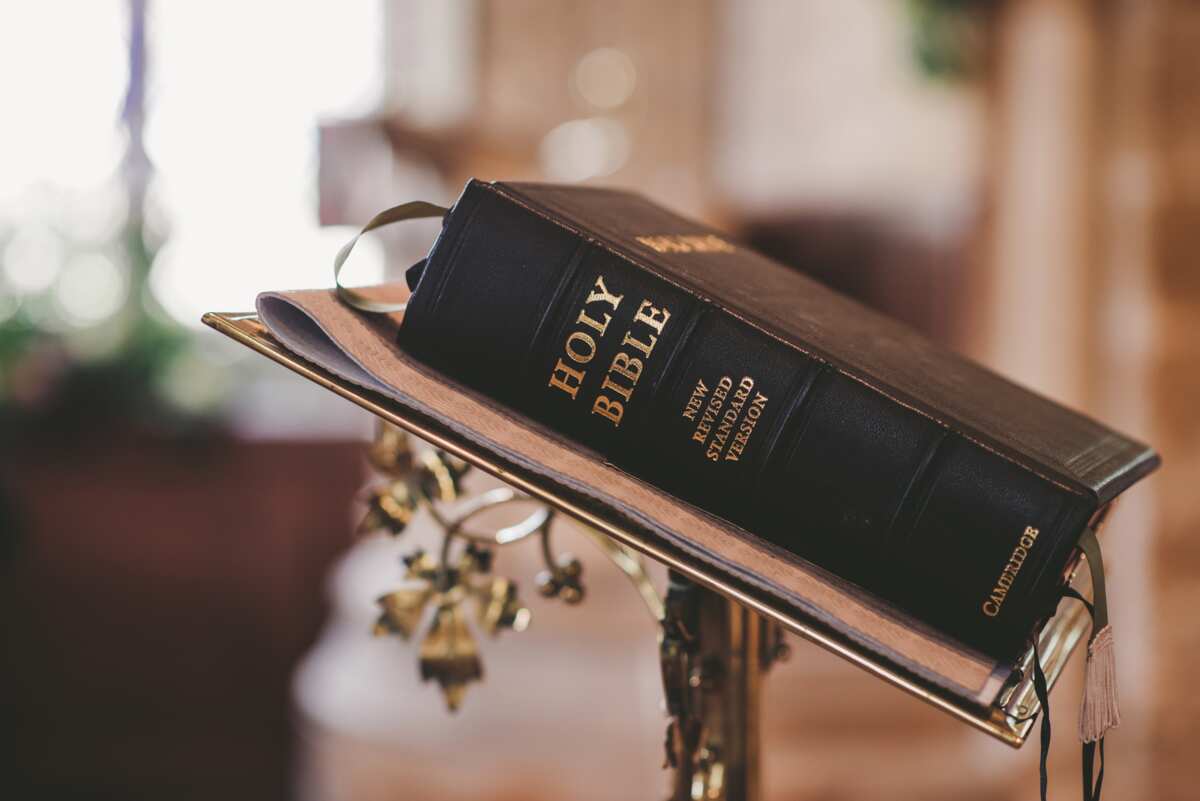What does the Bible say about cremation? There are many topics about the Christian faith that Christians are unsure of, and one of them is the issue of cremation. While some claim that the burning of a dead body is disrespectful to the human body that was created in the image and likeness of God, others argue that there is no specific verse in the Bible prohibiting cremation. Is cremation bad for the soul? Read on to get an answer.

Cremation can be defined as a method of the final disposition of a dead body through burning. Lauded for its cheapness as compared to burials, the process is one that has elicited numerous debates in Christian circles. Here is what we know about cremation in the Bible.
Is cremation Biblical?
There is no specific Bible verse that either supports or prohibits cremation. This is why many are continually asking, ‘Is cremation a sin?’

Read also
Heartbreaking: Photos of Army couple killed in southeast emerge, Nigerians react
However, the Bible does mention instances of cremation, as seen below.
First person cremated in the Bible - King Saul
The Bible’s first mention of this method of the final disposition of a dead body comes in the book of 1st Samuel chapter 31. In this passage, which is titled ‘Saul takes his life’, Christians read about King Saul and his death while at battle with the Philistines.
The passage talks about the Israelites and the Philistines who were in battle. As it turned out, the Israelites were subdued, and many of them died at Mount Gilboa. The Philistines were in hot pursuit of King Saul and his sons - Jonathan, Abinadab and Malki-Shua.
The Philistine archers critically wounded King Saul, and upon noticing this, Saul asked his armor-bearer to kill him before the Philistines could do so and subsequently, disgrace him.
His armor-bearer could not gather the guts to do this, and Saul had to take matters into his own hands - he fell on his sword and died.

Read also
Ayo Ogunsan at 45: The chronicle of an emerging colossus by Ayo Alonge
Upon seeing this, the armor-bearer did the same, taking his life as well. On that day, Saul, his armor-bearer, his sons, and all his men died.
The next day, the Philistines went to strip the dead and found Saul and his sons dead at Mount Gilboa. They proceeded to cut off Saul’s head, and they then stripped him off his armor.
The people of Jabesh Gilead, upon hearing what the Philistines had done to King Saul, sent all their valiant men to retrieve their bodies. The men then burned the bodies at Jabesh.
Then they took their bones and buried them under a tamarisk tree at Jabesh, and they fasted for seven days. (I Samuel 31: 1-13)
In 2 Samuel 4-6, this incident is talked about yet again. The scripture tells about David when he was being anointed as the king over the tribe of Judah:

Read also
Islam is not the problem: A case of Sheikh Gumi and Khalid, opinion by Aanu Adegun
When David was informed that it was the men from Jabesh Gilead who had buried Saul, he sent messengers to them to say to them, “The Lord bless you for showing this kindness to Saul your master by burying him. May the Lord now show you kindness and faithfulness, and I too will show you the same favour because you have done this. Now then, be strong and brave, for Saul your master is dead, and the people of Judah have anointed me king over them.”
Achan and his family
Another section of the scripture that has been used in ‘cremation and the Bible’ debates comes from the book of Joshua chapter 7, a passage titled ‘Achan’s Sin’. Achan (who was the son of Kamri) and his family were stoned to death and cremated. This was because Achan had sinned by taking the spoil of the battle of Jericho.

Read also
The most famous Frederick Douglass quotes on education, power and slavery
Many argue that this is a Biblical reference against cremation, but there is no proof of this.
What do Catholics have to say about cremation?

According to The Code of Canon Law, 1985, the Roman Catholic church does not prohibit cremation unless it is for reasons that go against Christian teaching.
However, the Code strongly recommends burial as was done for Jesus Christ.
The Code further insists that the cremated remains be treated with the same respect as corporal remains. This means that the final disposition of the cremated remains should include interment or entombment in a columbarium or a burial plot in a cemetery or mausoleum.
As such, scattering the ashes in the air, floating them on the sea, or keeping the ashes at home is taken to be disrespectful and should not be done by Catholics.
The Code further states that it would be preferred if funeral rites are performed in the presence of the body of the deceased before it is cremated.

Read also
Interesting details about Tiger King Netflix characters: Where are they now?

Cremation Bible verses
Here are some more Biblical scriptures that talk about cremation as a means of the final disposition of dead bodies.
- Amos 6: 8-10
- Jeremiah 34:5

Read also
Ric Ocasek dies peacefully at his home
- Genesis 3:19
- 2 Kings 23:15-20

Read also
Davido's reaction to Naira Marley Ruggedman beef is so wise!

- Leviticus 20:14
- Leviticus 21:9
- 2 Chronicles 16:14
In conclusion, to answer the question, ‘What does the Bible say about cremation?’, it is clear to see that the Bible does not prohibit nor does it favor it. The decision to use this method solely depends on one’s cultural views and opinions.

Read also
Today in history, April 18: Albert Einstein died of heart failure, cremated not long after
Source: Legit.ng
ncG1vNJzZmivp6x7rbHGoqtnppdkfnR8lm5ubmWnna61ecGimaWdXZi%2FprnAraCopl2ewG6tjKygp2aYqbqt